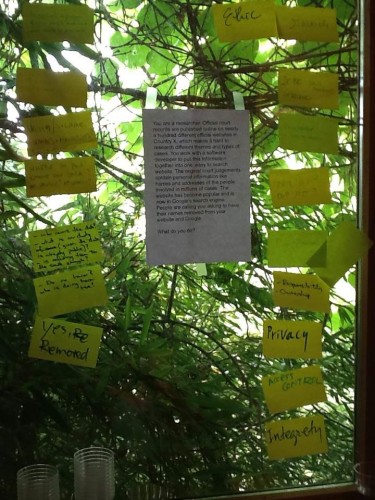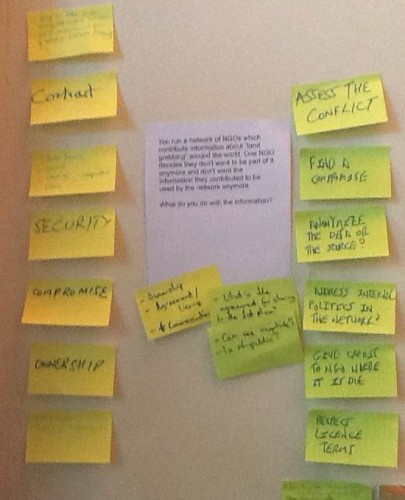Questions lead to answers that lead to more questions. Tactical Tech Info Activism Camp has a number of tracks: Documentation, Investigation, Curation, and Beautiful Troublemakers. I joined the "microscopes are us" evidence team aka Documentation. We've spent the week in brain strain grappling with the nature of problem-solving, decision-making, ethics, analysis and documentation.
Our mighty facilitators built the sessions based on real projects and examples. Our community of participants infused it with their project examples. It is often within the scenarios that the rich detail inspires and challenges us. As one participant opined: "Information wants to be complex" and another stated: "Information sometimes has a force of will."


What would you do?
Our Thursday discussion focused on Ethics in Documentation. These examples are about "personal identifying information" and "informed consent".
